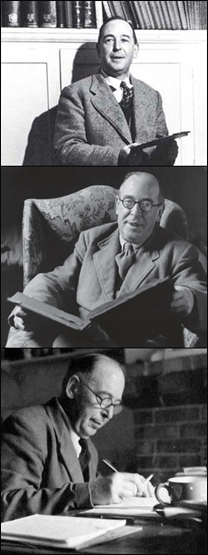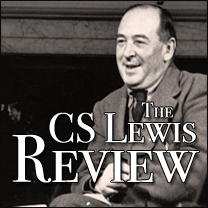
King Kong’s Kolossal Kinetic Kollapse
December 18th, 2005 | Skip to comments
I know. There is no reason why a review of “King Kong” should appear on a page dedicated to C S Lewis, except that it provides some useful comparisons between two kinds of film experiences, the kind offered by Andrew Adamson, and the kind provided by Peter Jackson.
I saw all 3 hr. and 8 minutes of Kong three days ago. (Ok, I admit it, I missed about 6 minutes in the first third of the movie by dozing off on the longish “at-sea” sequence.) On reflection, my 2 hr. and 20 minutes in Narnia seemed very well spent when compared with the three rather bloated hours in Kongland, not that there were not some delights awaiting me. . .
Homage is an acceptable film genre, and Jackson’s admiration for the old King Kong, depression-era NYC, the demise of vaudeville, and the campy aspects of pseudo-vintage-film-within-a-film-making is admirable, and well on display here. In fact, it almost accounts for the movie entirely. But 3 hrs. of “homage” may be more than any one human should have to take, no matter how well it is done. Jackson has in fact made Kong into what is a kind of Frankenstein movie, Kong/Boris Karloff as long lost dead friend, the only thing missing being the cigars. So, is Kong King or Not?
No, and what Adamson does with the CGI Beavers and Tumnus and Aslan seems positively seamless and underappreciated when compared with the frenzied unaligned, endless sequences in which this human or that one gets trampled by a T-rex or eaten by a giant arachnid. (Ugh–Lewis, who hated insects, would have walked out of this one faster than you can say “Fantasia.”) No, Kong is meant to be outrageous, of course, and it is, but not in the way Jackson intended, and it is by its end, an unbecoming outrage, maybe even a gargantuan, epic miscalculation, fervently overpraised by critics and underseen by the millions by ordinary viewers: in short, The Heaven’s Gate of Monkey Movies. (And: I simply don’t like that many dinosaur-death-match scenes. How many of us do? We know for a fact how much Peter Jackson likes them. Very much.)
You’ve heard tell of movies for which word of mouth says, “The Special Effects are the reason to see it?” Not this one; there is such a self-indulgently lavish deployment of prehistoric zoology (Darwin gone wild) there is nothing left to put on an extended DVD set. Leaving Skull Island (and that’s a cheat–we deserve at least one scene depicting how Kong gets to Ellis Island) has never been more welcome, NY here we come. And Jackson’s re-evocation of Times Square and old New York is quite breathtaking–making me think: if only the movie were about vaudeville and the seedy types who populated the theatre district in the 1930s, and Kong just had a cameo appearance. That might be a movie worth seeing.
When cometh the climactic Empire State aeroplane battle, it slowly emerges into anti-climax suffering from one too many “crush the elevated train” shots. But it is just here that it occurred to me that I suddenly intuitively understood why Tolkien did not like Narnia, and, equally, why I prefer Narnia to Middle-Earth. It’s the kitchen sink approach–too much of too many “good” but disparate things (defining “good things” loosely as what brands of nostalgia engage Peter Jackson’s film instincts.).
Jackson writes and directs, you might say, with a skewered Lewisian temperament–the stance that Tolkien disliked: anything, any creature might emerge here (Spy Kids 2 especially suffered from this as well). But the defining difference is, Lewis controls it all with consistent theme, strong central characters, and a superior grasp of human nature and destiny. So does Adamson’s Narnia.
Jackson may never be able to make a quiet film again, the kind, you know, with normal streets and sunsets and clever dialogue between one or two characters. The scale of his imagination demands that he must flood the screen with a cacophony of image and sound, where individuals must of necessity pale in significance to the broadest, boldest, most stretched, most magnified landscapes, species, storylines. Without a “grand narrative” to guide him, without Tolkien’s discipline, Jackson surrenders storytelling to mere spectacle and screenplay to lists of animatronics and Andy Serkis impersonations. I have gotten all the way here and have not said anything about Jack Black, Naomi Watts, or Kyle Chandler (the only actor who seems to know he is in a movie, and thereby entertaining). That says a lot in itself.
Speaking of movies that know they’re movies and loving it, if you have not seen Kong yet, save your money–and just buy and treasure Serenity when it comes out this Tuesday, December 20.




Comments
No comments yet.
RSS feed for comments on this post.
Sorry, the comment form is closed at this time.